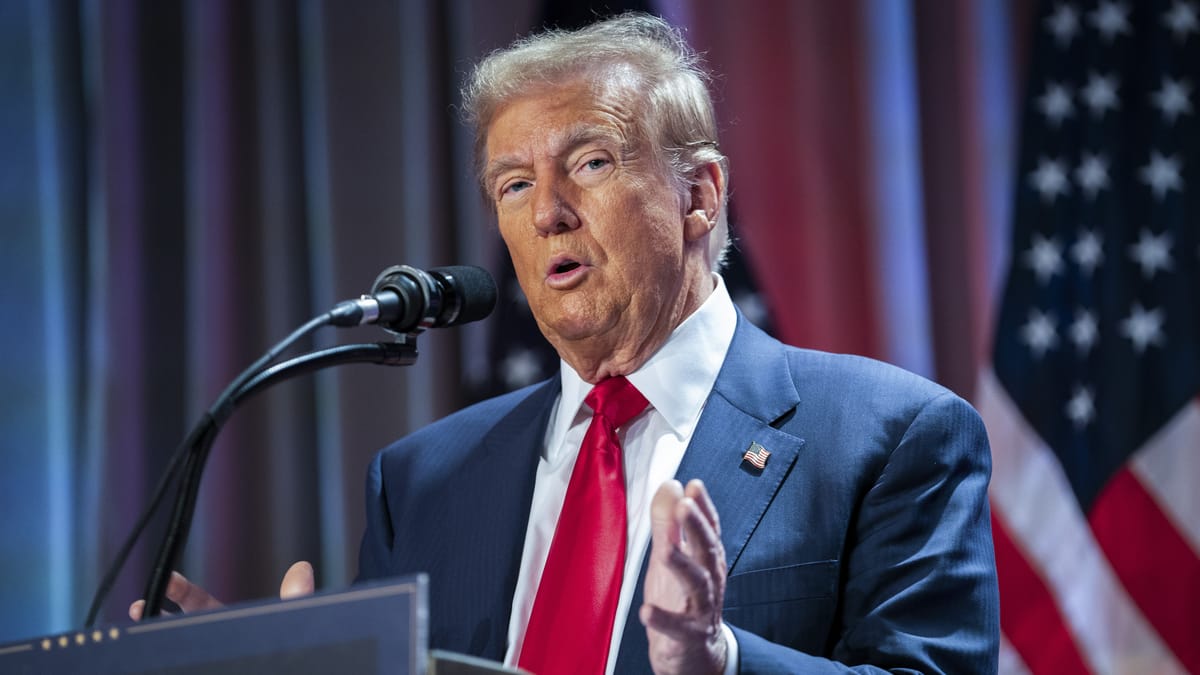Donald Trump and the "One-Week Plan": How a Lack of Understanding of a Complex War Leads to Political Failure

How illusions about the Russia-Ukraine conflict are trapping the former U.S. president in a web of underestimated realities?
In American politics, Donald Trump has long positioned himself as the "master of deals," capable of swiftly resolving global conflicts. However, the war between Russia and Ukraine presents an entirely different challenge—one where simple schemes collapse under the weight of reality. Judging by Trump’s rhetoric, he expected to pressure Kyiv unilaterally, secure an "instant ceasefire," and then emerge as a global peacemaker. Yet, the actual situation is far more complex. Why did the former U.S. president miscalculate the nature of the war, and who has he now trapped—himself or Vladimir Putin? To answer this, we must examine how Trump and his inner circle perceive the situation, and how this perception is received by Ukrainian leadership, European allies, and even significant segments of the Republican establishment.
A Misunderstanding of the Conflict’s Depth: The Problem of Insufficient Reliable Data
Based on Donald Trump’s public statements, he envisioned ending Russia’s war against Ukraine in an extremely short period—“in a week,” “in a few days,” and similar claims. He suggested that the entire problem boiled down to the “weakness” of the Ukrainian side, which, in his view, was entirely dependent on the U.S. and would have no choice but to comply with any ultimatums. It is clear that Trump perceives the war in an overly simplistic manner, failing to grasp its geopolitical and military complexities. He seems to believe that all it would take is “pressuring” Kyiv, and President Volodymyr Zelensky would obediently cede territories to Russia and perhaps even flee to Paris.
From Kyiv’s perspective, such a scenario is completely unrealistic. Zelensky has publicly stated that the U.S. should not negotiate away Ukraine’s interests and that Trump’s rhetoric is “disinformational,” failing to reflect the actual battlefield situation. The reality is that for three years, Ukrainians have been repelling aggression from a nuclear-armed state, and Zelensky has no intention of abandoning his country or seeking exile. Trump, it appears, neither possesses the necessary intelligence nor demonstrates the willingness to engage with the hard facts of Ukraine’s military resilience and the unwavering domestic support for its defense.
Another aspect of Trump’s miscalculation is his belief in Russia’s supposed “invincibility,” a notion he has echoed publicly by claiming that the Russian military cannot be weakened. This mindset closely resembles Kremlin propaganda from late 2021 to early 2022, when Moscow itself expected Ukraine’s forces to crumble at the first assault. In reality, Russia failed to seize Kyiv, lost its reputation as the "second-best army in the world," and became bogged down in a war of attrition. Many Republican politicians in the U.S. understand this well and support continued military aid to Ukraine. Yet, Trump still seems convinced that Russia remains an unstoppable force, leading him to favor appeasement in exchange for the illusory status of a “peacemaker.”
The Shift Toward Hostile Rhetoric: Why Trump Embraces Putin While Attacking Ukraine
After failing to secure a swift capitulation from Zelensky, Trump pivoted toward direct attacks on Ukraine. He labeled Zelensky a “dictator,” falsely suggested that the Ukrainian president’s approval rating was only 4%, and began echoing narratives frequently found in Russian propaganda. Essentially, his rhetoric aligned with the Kremlin’s messaging: portraying Kyiv as the obstacle to peace while presenting Moscow as a “conditionally strong” player.
For Russia, this shift in Trump’s tone was a gift. Unsurprisingly, Russian state media enthusiastically framed Trump as "our man" and celebrated the fact that he was parroting nearly everything Moscow had been promoting for years. However, within the U.S., this stance sparked backlash. Even among traditionally skeptical Republicans, there was broad recognition that siding with an aggressor was unacceptable. As a result, Trump has begun losing political ground, as he now appears to be a leader who readily surrenders key American interests and would “sell out” allies for short-term political gain.
At first, Russia welcomed Trump’s apparent willingness to “concede” Ukraine. But when Trump unilaterally suggested that Ukraine should cede territory and abandon NATO ambitions without receiving anything in return, even Moscow grew suspicious: “Why is this so easy? Is this a trap?” This skepticism has been noted in global media—Kremlin officials struggle to believe that such a deal would materialize without hidden conditions. In reality, there is no trap; Trump simply fails to understand that Russia would not cease its aggression simply because a former U.S. president demands that Ukraine surrender. In effect, he is giving away assets, breaking longstanding American commitments to its allies, and receiving nothing in return except praise from a handful of propagandists.
The European and Domestic Response: How the Defense Industry and Congress Could Block Trump’s "Friendship" with the Kremlin
One of Trump’s greatest vulnerabilities is not just domestic opposition but also the reaction of European allies. Europe is acutely aware that a “victorious” Russia in Ukraine would mean a massive refugee crisis and an expanded Russian military presence on NATO’s borders. If Trump were to truly abandon Ukraine, European governments would take drastic countermeasures—ranging from increased direct military aid to Ukraine to imposing even harsher sanctions on Russia. European media see no realistic basis for surrendering to Putin, as such a move would be catastrophic for regional security.
Another factor is the immense influence of the U.S. defense industry. By advocating for drastic cuts to military spending, Trump is essentially declaring war on powerful corporations that have grown accustomed to enormous, stable profits. Many Republican lawmakers, whose political futures depend on maintaining these industries, would be prepared to block any policies that align with Russian interests. For them, ensuring that America remains a pillar of transatlantic security is not just ideological—it is also financially imperative.
Moreover, Trump’s stance on Ukraine could have significant consequences for Taiwan. If the U.S. demonstrates weakness by abandoning Ukraine, China might interpret it as a green light for military action against Taiwan. Such a scenario could drag America into an even more dangerous and costly conflict—one that would force Trump to navigate a geopolitical crisis far beyond his depth. Ironically, pulling support from Ukraine could lead to even greater risks for the U.S.
Will Reality Force Trump to Reconsider? Future Scenarios
Currently, Trump is attempting to rhetorically undermine Ukraine, threatening to cut off aid while shifting blame onto Kyiv if the war persists. However, the realities of American politics and institutional pressure may force him to revise his approach. Ukraine’s resilience has exceeded expectations, and the U.S. defense industry, a significant portion of the Republican Party, and Europe strongly oppose rewarding Russian aggression.
Ultimately, Trump’s rhetoric may resemble Putin’s early 2022 miscalculations about Ukraine’s weakness, but reality dictates different rules. Within Republican circles, questions are already emerging: “Is Trump making a catastrophic mistake by aligning the U.S. with Russia, Iran, and North Korea?” The moral, strategic, and economic costs of such a shift are too high, and this realization may drive growing opposition to Trump’s stance—even within his own party.
Whether Trump will adapt remains to be seen, but one thing is clear: his simplistic vision for ending the war has already failed.
You can download the text of this article at the link below.





